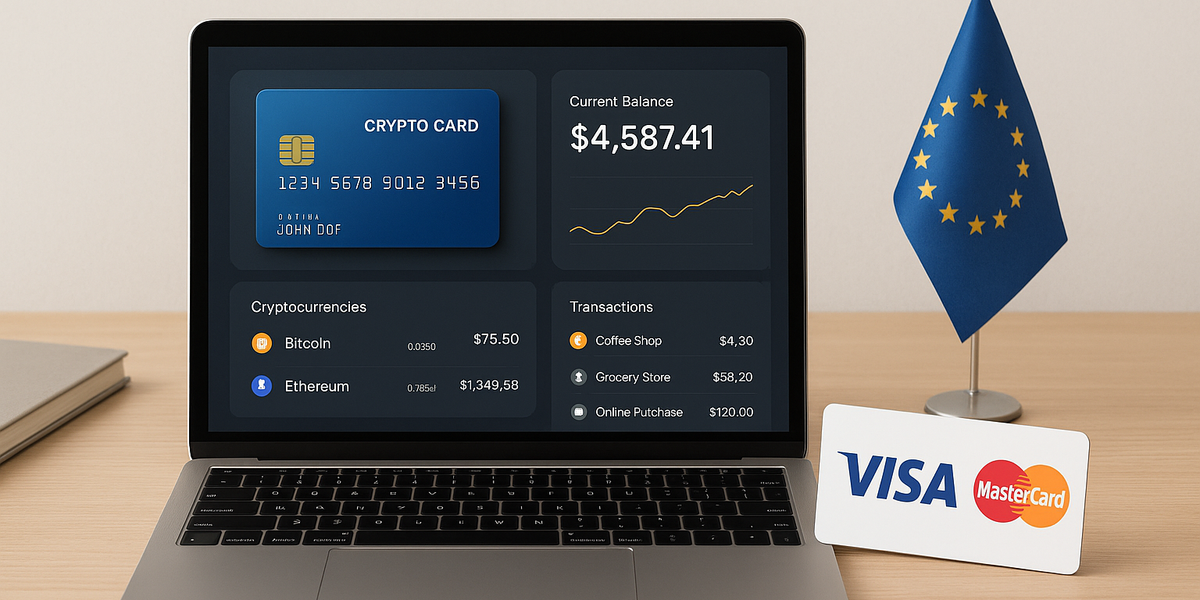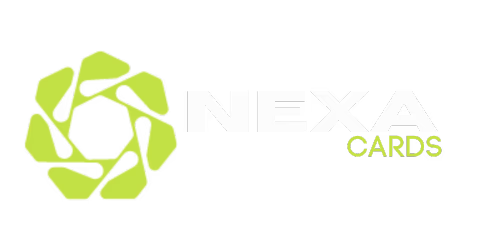
Credit Card for Crypto — Fees & Limits Explained for Germany (2025)
A crypto-friendly credit card enabling easy buying, spending, and managing of digital assets.
1 — Quick summary: what to expect
Using a credit card for crypto usually means one of two flows: (A) buying crypto on an exchange with your credit card, or (B) loading/spending crypto via a crypto-linked card (physical or virtual) that converts crypto to fiat at the point of sale. Both flows carry layered fees — exchange/issuer fees, card-scheme fees (Visa/Mastercard), and foreign-exchange or conversion fees — and limits that differ by provider. Plan for 0.5%–3% in fees for many transactions, with occasional fixed fees or top-up charges.
2 — How “credit card for crypto” services work
There are three common setups:
- •Buy crypto with a regular credit card on an exchange — the exchange charges a card fee and the card network/issuer may treat it as a cash-equivalent transaction (higher interest/fees).
- •Use a crypto issuer’s card (debit/credit-style) that spends crypto by converting it at point of sale — the provider handles conversion and issues settlement through Mastercard/Visa.
- •Virtual credit card crypto solutions: instant virtual card numbers funded by crypto or stablecoins — useful for subscriptions and online payments; they often have different fee profiles and lower issuance friction.
3 — The fee breakdown you must know
To budget properly, think of fees in layers:
3.1 Exchange / issuer markup
Exchanges or card issuers often add a percentage on top of market conversion (0.5–2.5% typical). Some providers also charge a flat top-up fee. Example: many European crypto cards list explicit top-up or conversion charges.
3.2 Card-scheme and interchange fees
Visa/Mastercard levy scheme and interchange fees that affect merchant acceptance and processing costs. In Germany these scheme fee schedules are published and regularly updated; they contribute to the effective cost of a card transaction. For merchants these are tiny percentages, but for crypto-card issuers they form part of the cost base.
3.3 FX / cross-border fees
If conversion between crypto and EUR or purchases outside your settlement currency occurs, expect FX fees. Some crypto cards absorb small FX margins; others add 0.5–2% or more.
3.4 ATM & cash withdrawal fees
Cash withdrawals from crypto cards typically have monthly free allowances then percentage fees or fixed charges per withdrawal. Read the fine print before relying on ATM cash.
4 — Typical limits: top-ups, spending, ATM withdrawals
Limits vary widely by provider and KYC level:
- •Entry-level / basic verification: modest daily and monthly top-up/spend limits (e.g., €1,000–€15,000 depending on provider and tier).
- •Enhanced verification: higher limits for deposits, spending and ATM withdrawals (after address/ID checks).
- •Per-transaction caps: some services cap individual transactions (e.g., €5k–€10k). Nexo and similar providers publish per-transaction and daily caps for card use.
Because limits are KYC-dependent, businesses and heavy users should verify ceilings before committing.
5 — Virtual credit card crypto — fee & limit specifics
A virtual credit card crypto is a digital card number that is typically funded from crypto or a fiat wallet linked to your crypto holdings. Key points:
- •Issuance fees: often free or a small one-off charge. Some providers offer instant issuance.
- •Top-up / load fees: can be a percentage or flat fee when converting crypto to the virtual card’s fiat balance.
- •Limits: usually similar to physical cards but sometimes stricter for high-value purchases due to risk controls.
Virtual cards are excellent for subscriptions and vendor payments because you can issue and cancel numbers quickly, limiting exposure.
6 — Practical examples (how fees & limits play out)
Below are representative examples of real provider approaches in Europe (check current T&Cs; these are illustrative):
- •Crypto.com (EU cards): card-top-ups via debit/credit card often carry a 1% fee; ATM withdrawal and replacement fees vary by tier. Useful for everyday spending but check monthly reward caps.
- •Nexo-style cards: offer zero monthly fees in many tiers but apply ATM, FX or withdrawal limits after a free allowance; they publish clear per-transaction limits. Good for users who want flexible debit/credit mode options.
- •Bitrefill / virtual prepaid: some prepaid crypto cards have tiered limits (Starter vs Plus) with different deposit/spend ceilings. These are handy for one-off top-ups and controlling exposure.
Always check whether your chosen provider treats card purchases as “cash-like” for your traditional credit card issuer — that can trigger cash advance fees if you buy crypto with a conventional credit card.
7 — How to minimise fees & manage limits (practical steps)
- Compare total cost, not just one fee: add issuer markup + scheme + FX to compare real cost per transaction.
- Use EUR-settled cards for Germany: reduces FX fees for local spending.
- Top-up in stablecoins vs volatile crypto when offered — helps avoid slippage during conversion.
- Complete full KYC if you need higher limits — verified accounts unlock higher daily/monthly caps.
- Use virtual cards for subscriptions to avoid repeated foreign-transaction charges and for easy cancellation.
8 — Helpful enhancements for business use
- •Automated accounting integration: connect your card or wallet to bookkeeping tools to tag crypto expenses and track VAT/applicable taxes.
- •Multi-user team cards / virtual sub-cards: useful for agencies or freelancers managing multiple clients.
- •Spending rules and real-time alerts: set thresholds to avoid accidental overspend or large FX conversions.
9 — FAQ (short)
Q: Is a crypto card legal in Germany? A: Yes — crypto services operating in Germany fall under EU/MiCAR rules and BaFin guidance; regulated providers must comply with AML/KYC and relevant licensing. Check your provider’s local compliance.
Q: Are there cheaper ways to spend crypto than a card? A: Bank transfers after conversion to EUR often cost less than card conversions — but take longer. Use cards for speed and convenience, bank transfers for larger, planned moves.
10 — Author & review box
Author: Payments & crypto specialist with 10 years’ experience advising European fintechs and freelancers on payments, cards and regulatory compliance.
Reviewed by: Nexa Cards Solutions, Ltd.
Contact Nexa Cards Solutions, Ltd.
- •Website: https:/nexacards.com
- •Address: 3rd Floor, 86-90, Paul Street, London, EC2A4NE
- •Phone: +1(877) 770-0550
- •Email: [email protected]

